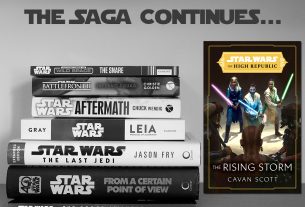Reading Time: 7 minutes

There are distinct stages that accompany working on a jigsaw puzzle. For the benefit of my readers, I generously experienced them all, and have dutifully reported them. I hope you appreciate my sacrifice.
2000 pieces. The picture on the cover of the box looks interesting, with plenty of different colors and shapes. It’s cold outside, so there will be plenty of time spent indoors, and what a great bonding activity to do with your kids (at least one of them, anyhow).
I began this particular jigsaw puzzle in December. I wanted to have something to turn to that would balance the chaos of end-of-school gifts, shopping, baking, and working through the never-ending checklist.
Stage 1: Denial
This won’t be so bad. I can totally do this. It’ll be fun. I can do something somewhat engaging with the kids (rather than zone out and read). It’ll be great!
Stage 2: Anger
Nobody else wanted any part of it, and oh god there’s so much football on television and there I am, taking up all this space on the dining room table. Nobody wants any part of it. We can’t even find all the edge pieces (and what kind of savage proceeds without first completing the border?!). Can’t someone just come over during the commercials? It’s not like you have to commit a lot of time. Why won’t anyone help me?!
And in one of those moments, I took it apart. It took three days before anyone even noticed! Stupid puzzle.
Stage 3: Bargaining
Maybe if I set it up at my in-laws’ house, where we usually do a puzzle over break, others will join in. Yeah, it won’t be so bad and will actually be fun. Fun, I say. Fun! Only, it barely got worked on. By the end of the holidays, when the kids were ready to return home and head back to school, we were nowhere close to completing the puzzle. It got disassembled. Again.
The following Friday, we had a snow day, so I told my 13-year-old to bring a puzzle out. Perfect time to work on the jigsaw puzzle, right? He brought out a different puzzle. A 500 piece one. We got it mostly done that day. Two days. That’s all the time it takes to do a normal sane person’s puzzle. Which means, if math is to be believed, it should take eight days to finish a 2000 piece jigsaw puzzle, right? No. We started again with the 2000-piecer, and it’s still going. It feels like it will never end.
Stage 4: Depression
Six days in, and it feels hopeless. Nobody wants to do it. It’s like we’re just going through the motions. I had to yell at Thing 1 and Thing 3 to stop playing catch with the puzzle pieces. Instead, they got out some game token and a vase and proceeded to play some made-up version of catch while the dog ran back and forth between them. I kept plodding away at the jigsaw puzzle. How rudely they kept laughing, playing happily, not the slightest bit compelled to help finish this stupid puzzle with 2,000 stupid pieces. Instead, this jigsaws puzzle would sit here forever, and I, like Sisyphus, would spend the rest of eternity placing piece after piece within this never-ending puzzle. Never to have fun ever again.
Stage 5: Anger
And what’s the point of jigsaw puzzles? What am I even going to do with it when it’s done? Take a few minutes to appreciate the completed product, then break it apart and put it back in the box. If I wanted the completed picture, I’d buy a poster, not glue together and put up somewhere this symbol of relentless misery and wasted time. What a stupid pointless endeavor. I swear, I’m never doing another jigsaw puzzle again! They’re the evilest creation ever.
Nonetheless, I plod on. Angry, grumbling, reinforcing myself with chocolate covered pretzels or some other equally unadvisable snack since I’m not actually hungry but so what? Something’s gotta temper the rage that’s slowly stewing inside me.
Stupid piece, get in there. That’s right, you better fit. Yeah, I’m talking to the jigsaw puzzle. You got something to say about that?
Stage 6: Hysteria
I get a piece in. I fill in an empty spot, the figurative pimple of absence in an otherwise unblemished facade, and I clap. One more, and I cheer. Another piece, and I hoot. With each piece, the anger crumbles away and I give into giddiness. I will celebrate every small victory (side note: this is similar to being a Cleveland Browns fan; I now cheer every catch, every first down, every play where we don’t fumble the ball as if we’ve just won the Super Bowl, my own little version of “Appreciate the Little Things”). Never mind that the anger is a steep cliff and that the crumbling away under my feet can’t possibly lead to goodness. I don’t care anymore. I’m going to celebrate each and every piece whose home I find. This is no longer a leisure activity, this is a noble quest. I am a selfless puzzletarian, ignoring my own troubles to help 2,000 unfortunate jigsaw puzzle pieces find their homes. And I will not rest until there are no more homeless puzzle pieces. I ponder the appropriate playlist: “We Are the World,” “The Greatest Love of All,” and of course, “Come Together.” These songs blast through my head as I focus, push forward, looping again and again, knowing that one day soon (oh, god, it better come soon) we’ll fit the last piece in and I will blast the theme from Rocky on all the speakers in our house and run up the stairs with my arms and head held high.
Stage 7: Philosophy
The hysteria fades, and in its place, I ponder. Why do I do jigsaw puzzles? What compels me to torture myself in this way? What am I gaining? And the answer is right in front of me. I pick up a piece, look at it carefully, examine the colors, shape, and tiny details, then determine where it belongs. I use all my powers of perception to put it in its place. Sometimes I’m right, but not always. Many times, the piece surprises me, fits in somewhere completely different, turns out to be something I hadn’t even imagined. And no matter how much I wanted it to go in one place, it fits where it’s meant to fit. I can be angry or frustrated about it, but that won’t make one lick of difference in the end. My purpose is to get each piece where it needs to go. That’s it. Just to help the process along, because left alone, it’s not getting anywhere. The puzzle pieces in the box, they’re just resting, waiting.
I think of this first in terms of my novel-writing. That I go through these stages with the parts of my stories, but that my job is to find the connections that I didn’t realize were there all along, to be patient and let myself go through these emotional stages—all the way to the end—to get my novel where it needs to go.
But it turns out, it’s also a great metaphor for parenting. If the final puzzle is a picture of a well-rounded, well-adjusted adult offspring, then my job is to make sure all the pieces are there, and I can guide my children, but I can’t turn them into something they’re not. I will teach them to cook, do laundry, look out for each other, and manage money. I will drive them to sporting events, listen to them, teach them critical thinking, and help them learn who to turn to for help. I’ll be wrong sometimes, but that’s okay. I’ll just try again.
I look across the table at my 13-year-old, watch him attach another piece. And I smile. We’re not in this alone. There’s no great glory in finishing solo; help is always appreciated. And while some may wish to interfere—cause mischief by putting random pieces together incorrectly, for example—sometimes it’s nice to be together, and other times alone.
Heck, jigsaw puzzles can be a metaphor for life itself. Keep puzzling, feel free to restart, and if it all falls apart, the pieces are just waiting for you to put them back together. And when you’re done with one thing, there’s always another project to tackle.
Stage 8: Desperation
Yeah, that deep thinking fades. And then you’re still faced with an unfinished jigsaw puzzle. 2000 pieces! Only about a hundred pieces left. Gotta get them done. At this point, you’re testing the same piece in the same spot over and over, sure that it must be the right piece. It’s the right shape, after all. But no, it still doesn’t fit.

You sort through the rest of the pieces, organize them by shape, convinced that the time you’re taking for this essential task is not time wasted… any more than doing the puzzle itself is a total, utter, absolute waste of time that you will never get back. Once again you want to take it all apart, break it up piece by piece, and pitch it into the far reaches of the universe, never to be seen or referred to again. But you’re so close, you can’t give up now. Your kids ask for something—a snack, a friend over, TV time—and you command them to put one piece into the puzzle before they get it. And you mean business. The puzzle must be finished, and what kind of family are you if you can’t pull together in these hard times to do what must be done? To their credit, they try but walk away before they (as you were hoping would happen) get gripped by that same desperate need to reach the finish line.
Stage 9: Acceptance
Meanwhile, the clock ticks on. The kids have school tomorrow, and we haven’t had dinner. Somehow, I get up, walk away from the table, and head to the kitchen. I sit with the family and eat, talking about this and that, and that whole time, the jigsaw puzzle is silent. It doesn’t call to me. I don’t hear it whining, whimpering, moaning. After dinner, I read to my son then kiss him goodnight. I return downstairs, where I walk past the puzzle and instead sit with my husband and watch a bit of television before bed.
In the morning, I get the boys to school and sit down to write. From where I sit, I can see the jigsaw puzzle. I know it beckons me, but that’s okay. It’s okay to take a break every once in a while, from whatever. Long enough so that when you get back to it, you can enjoy it. And that’s where I am now. Enjoying the process.
Stage 10: Glee
But I’ll confess. I’ll be unabashedly happy when it’s done and gone.
Click through to read all of “10 Stages of Jigsaw Puzzling” at GeekMom.
If you value content from GeekMom, please support us via Patreon or use this link to shop at Amazon. Thanks!



